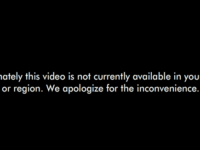The Online News Act may be only days removed from having received royal assent, but the government’s plans to support the Canadian media sector have already backfired spectacularly. While it claimed its Bill C-18 would add millions of dollars to the sector and support struggling media companies, the reality has quickly intervened: blocked news sharing on Internet platforms with cancelled deals on the horizon, reports of direct corporate intervention in news departments, massive layoffs and regulatory requests to decrease spending on news, and now a nightmare merger proposal between Postmedia and Torstar. And that is just over the past week. Canadian Heritage Minister Pablo Rodriguez has amply demonstrated that there is no Plan B, offering up the prospect of further dependence on government through more public spending to mitigate the harms from his massive miscalculations. Not all of this is the government’s doing, but having relied on empty assurances that blocked news sharing was merely a bluff, Rodriguez picked politics and tough talk over good policy and is now left with media chaos.
Blog
As Government Moves to Cut Off Bill C-18 Debate, the Reality is Artificial Intelligence Renders Bill Already Out of Date
The Online News Act, the government’s legislative initiative to make Google and Meta pay hundreds of Canadian media companies for links to their news content, is likely to become law before politicians break for the summer later this week. In fact, despite plans for an evening debate on the bill last night, the government interrupted MP Martin Champoux in mid-speech, cut the debate short, and gave notice that it plans to limit debate altogether this week (the irony that the government is cutting off debate on a bill it claims is essential to holding it to account should not be lost on anyone). The bill will likely be passed by the House by mid-week. Since the government is rejecting two Senate amendments, the bill will go back to the Senate for approval.
The lion’s share of attention on Bill C-18 has thus far focused on the response of the two internet companies, as both have raised the prospect of blocking news content on their platforms if faced with new financial liability for linking. Yet my Globe and Mail op-ed argues that focus ignores a vital new reality that may already render the bill out of date.
The Bill C-11 Fallout Continues: Disney+ Pauses Original Commissions in Canada
The fallout from Bill C-11 has been the subject of several posts this week, including the demands from a wide range of services for exceptions to the law and warnings from streaming services such as PBS and AMC that they may block the Canadian market due to the regulatory burden imposed by the law. While those stories focus on the availability of services and content in Canada, a new Variety report points to another negative impact from the bill: less film and television production in Canada, at least in the short term. Throughout the Bill C-11 debate, there were concerns that the large streamers might pause their productions in Canada given the uncertainty over whether they would “count” for the purposes of new CRTC imposed contribution requirements. In other words, the bill could initially lead to less investment in Canada.











